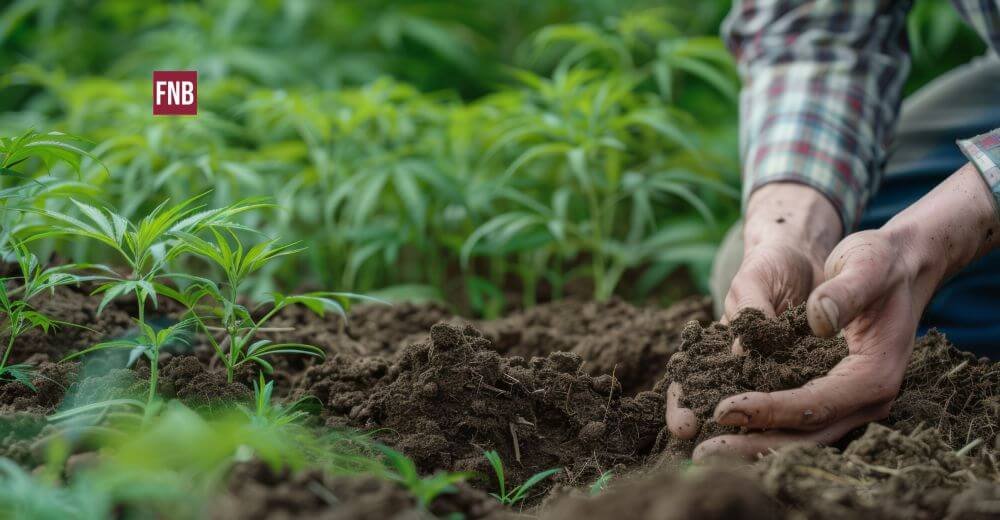The cannabis industry has grown to unimaginable proportions in the recent past, due mainly to the legalization trend of marijuana globally. Where there is growth, there is creativity and innovation, one of which has been the explosion of organic cannabis. As people become more aware of the effect that their shopping has on themselves and the world as a whole, organic cannabis is rapidly becoming the norm for what the future of the industry will be. This article demonstrates how organic cannabis can revolutionize the cannabis industry, the health benefits of organic cannabis, and its impact on the environment, along with future customer demand for green products.
The Rise of Organic Cannabis
Just like in any other business, the demand for organic products has grown tremendously, and it is the same case with cannabis.
Organic cannabis does not use chemical fertilizers, artificial pesticides, or herbicides but instead by embracing natural production methods such as crop rotation and composting. This growing demand for organically grown cannabis is akin to the trend towards living in an environmentally friendly, greener manner, since organically grown cannabis is an appealing choice to health-conscious consumers seeking a cleaner, greener cannabis over conventionally grown cannabis.
Also, people are better informed about damage brought about by man-made chemicals that are incorporated into their products. People are more than ever worried about residual damage that still persists on traditionally grown cannabis and thus are gravitating to organic products. As consumers increasingly move towards organic cannabis, farmers respond and adapt practices to include these assumptions and thus make organic cannabis a motivator for industry leadership.
Health and Wellness Benefits
Organic marijuana, grown without pesticides and fertilizers, offers a cleaner, healthier option to consumers who are unwilling to risk being exposed to potentially fatal chemicals.
Chemical pesticides and fertilizers have the potential to leave residues on cannabis crops that impact end product safety. Organic cannabis crops are not sprayed or fertilized with any chemical at all. The consumer is not brought into contact with dangerous chemicals, and it achieves this by addressing chemical sensitivity concerns by having assurance.
Environmental Impact
Apart from health benefits to the consumers, organic cannabis also has many benefits to the environment. The traditional method of cultivating cannabis has the potential of ruining the environment tremendously, such as causing soil depletion, water contamination, and degradation of the natural environment. The widespread use of man-made chemicals in the routine cultivation process is usually responsible for all these acts of environmental crimes because chemicals can seep into the adjacent land and water bodies and kill wildlife and pollute natural resources.
Organic cultivation is, nevertheless, greener. Organic farmers use natural soil management methods, such as crop rotation, composting, and biological control of pests, to increase the well-being of soil alongside its respective ecosystem. Organic farming sustains soil fertility as well as diversity and consequently decreases the environmental impact of cannabis cultivation.
In turn, organic cannabis cultivation would also incorporate environmentally friendly uses of water. Organic desert growers of cannabis will necessarily use water-efficient irrigation techniques, e.g., drip irrigation or rainwater harvesting, in an attempt to save water. Organic cannabis growing has the potential to offset the environmental impacts of cannabis cultivation as it grows.
The Organic Cannabis Market
While organic products experience growing demand, cannabis is only a segment of the movement. According to a 2020 report of the National Institute on Drug Abuse, there are more than 60% of cannabis users whose reasons for use are due to health and wellness reasons. With growing consumerism comes the potential for new markets for organic cannabis farms capable of producing high-quality, sustainable, chemical-free crops.
Organic cannabis businesses will expand manifold with increasingly growing and emerging customers opting for the organic farming advantage. More and more states and countries are legalizing it, and as a result, more demand will be witnessed by organic cannabis in the following years. The firms that concentrate on transparency, sustainability, and organic farming processes will be in a position to compete aggressively within a progressively dense marketplace.
With organic cannabis, not only is the consumer receiving a cleaner product but one that they will be happy to consume. As consumers become greener, ecologically friendly products and chemical-free products will become ever more in demand. Further, organic cannabis can be marketed toward both medical and recreational users, offering a cleaner, healthier choice for users seeking to benefit from the good in cannabis.
Challenges and Barriers
It has plenty to provide, but organic production of cannabis is plagued with numerous challenges. Firstly, it is much more costly. Organic production processes are more resource- and labor-consuming and costlier deployed techniques compared to conventional ones; hence, prices for organic cannabis products are higher.
The second is that there isn’t standard organic certification in some areas. Most of the agricultural crops grown contain organic certification, but cannabis typically falls under a complicated and technical series of rules. Some areas lack standard organic certification for cannabis, and hence the consumers are bewildered when purchasing certified organic produce. Standard organic certification for cannabis would prevent bewilderment and enable consumers to identify organic produce easily.






